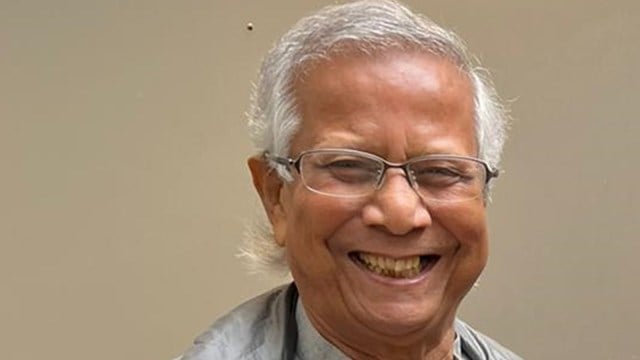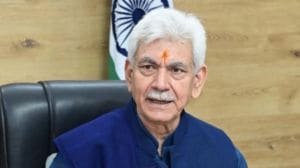Bangladesh protesters want Muhammad Yunus as interim govt’s chief adviser: Who is he?
When Sheikh Hasina returned to power in 2009, her government opened a host of investigations into Yunus’ activities, accusing him of using force and other means to recover loans from poor rural women as the head of Grameen Bank.
 Nobel laureate and Grameen Bank founder Muhammad Yunus. (Photo: X/@Yunus_Centre)
Nobel laureate and Grameen Bank founder Muhammad Yunus. (Photo: X/@Yunus_Centre)The leaders of Students Against Discrimination on Tuesday said they want Nobel laureate Muhammad Yunus as the chief adviser of Bangladesh’s interim government, a day after country’s Prime Minister Sheikh Hasina resigned and fled the country amid renewed anti-government protests that left at least 300 people dead.
The announcement came hours after President Mohammed Shahabuddin said an interim government would be formed as soon as possible after dissolving the Parliament.
Yunus, who is currently in Paris as an advisor for the Olympic Games 2024, welcomed the ouster of Hasina’s regime, describing the development as the “second liberation” of the country, PTI reported.
Who is Muhammad Yunus?
Born in 1940 in Chittagong, Nobel laureate and Grameen bank founder Professor Muhammad Yunus received his PhD in economics from Vanderbilt University in Tennessee, USA, in 1969 and subsequently, became an assistant professor at Middle Tennessee State University.
After Bangladesh was formed in 1972, he returned to his homeland and was appointed head of the economics department at Chittagong University.
The 84-year-old has had a frosty relationship with Hasina and is facing cases of alleged corruption in Bangladesh courts — charges he has denied.
Yunus as the ‘Banker to the Poor’
As Bangladesh struggled to stabilise its economy and tackle poverty in the post-independence years, Yunus came up with a unique idea to help the impoverished. He decided to provide small loans to entrepreneurs who wouldn’t normally qualify for bank loans, on terms suitable to them.
An African Development Bank Group profile of him states that following an initial local experiment, “the initiative took formal shape as the Grameen Bank in 1983.” The model has been replicated in more than 100 countries till date.
Grameen Bank is credited with lifting millions from poverty — it has disbursed collateral-free loans of $34.01 billion among 9.55 million people since its inception, Daily Sun, a Bangladesh-based national daily, reported last year. The recovery rate is 97.22%, the report added.
In 2006, Yunus and Grameen Bank jointly received the Nobel Prize in Peace “for their efforts to create economic and social development from below,” and came to be known as the “Banker to the Poor”.
Relations between Yunus and Hasina
Yunus’ idea of forming his own political party, soon after winning the Nobel Prize, did not sit well with Hasina. When she returned to power in 2009, her government opened a host of investigations into Yunus’ activities, accusing him of using force and other means to recover loans from poor rural women as the head of Grameen Bank.
In an interview to The Indian Express, in view of the ongoing crisis and Hasina’s allegations that Opposition parties are behind the protests, Yunus said, “The government is a lie-making factory, continuously lying and lying and lying, and they just start believing in their own lies. So this is their problem. They are prisoners of their own lies.”






- 01
- 02
- 03
- 04
- 05

























